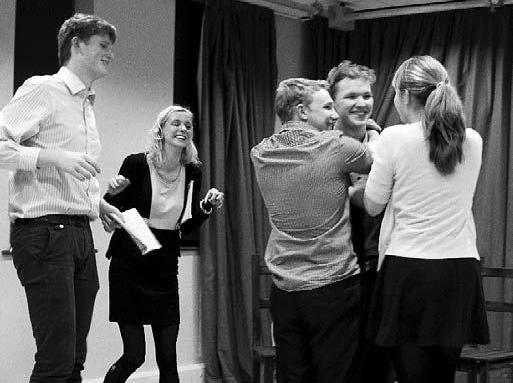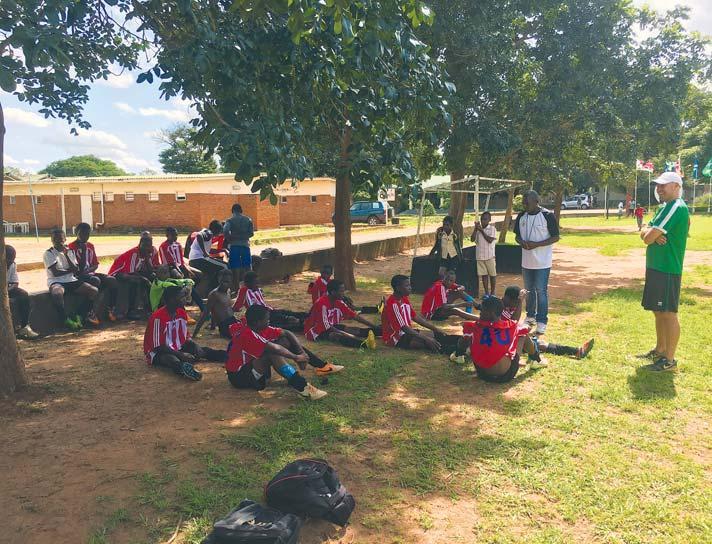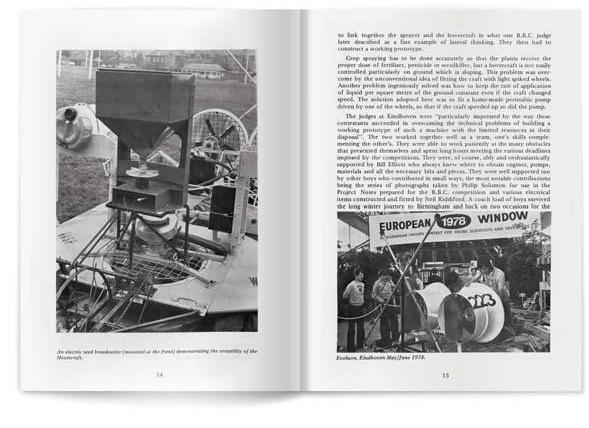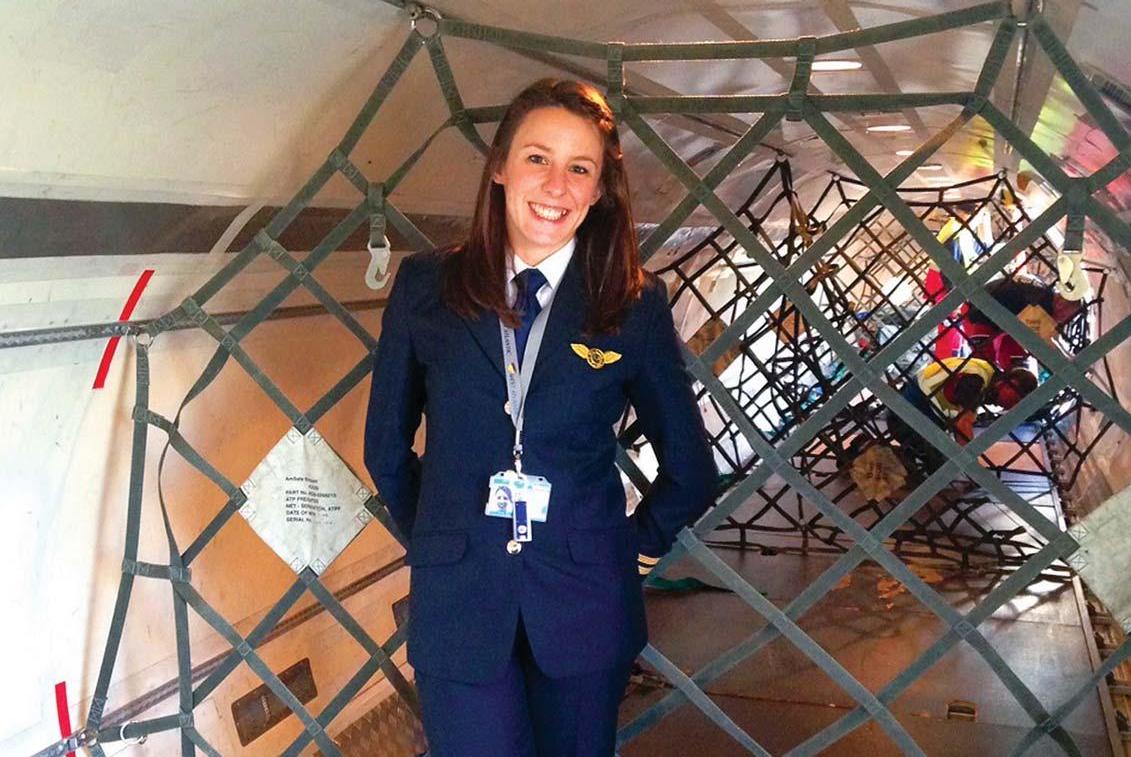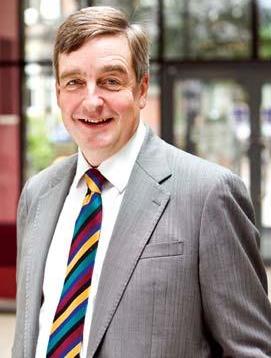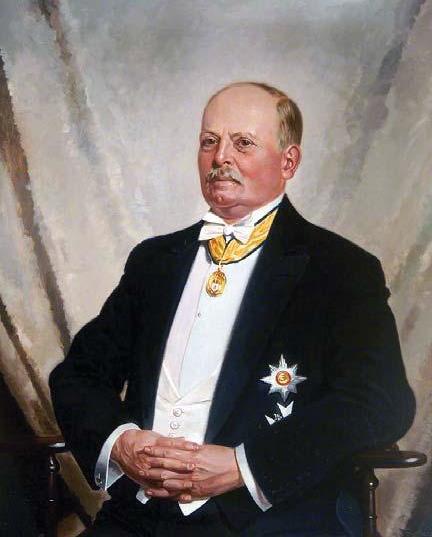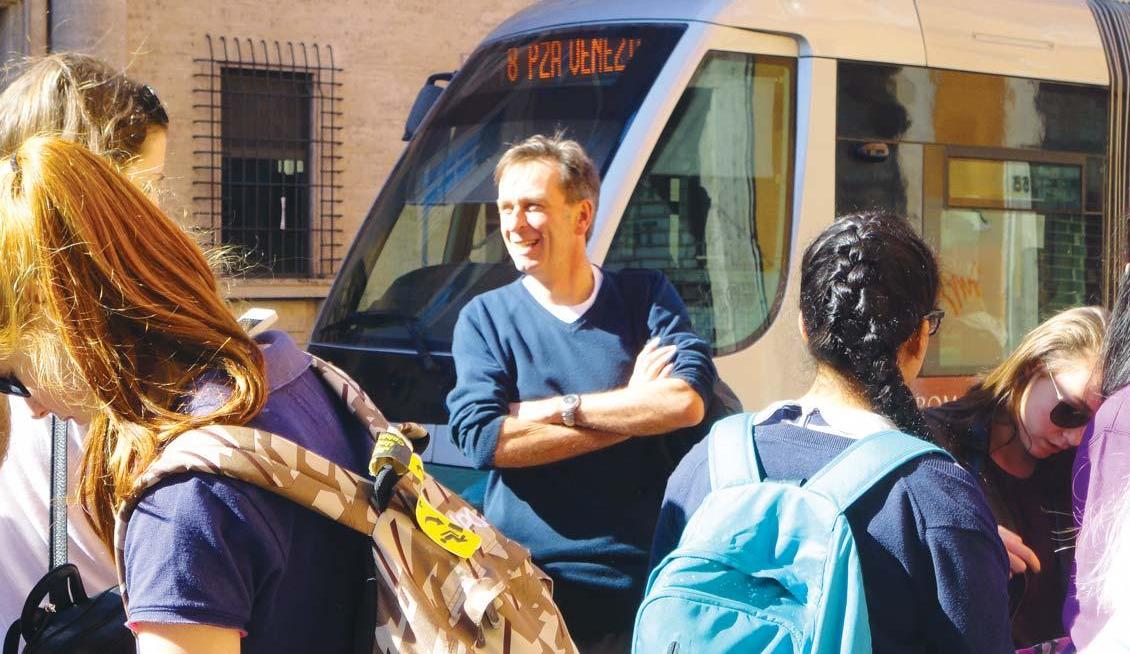
5 minute read
Tim Clark Retires
from ONA 100
Tim Clark (84-17)
Head of Lower School and Classics teacher –remembered by countless ONs –retires this summer, after 101 terms at the RGS.
Advertisement
Tim on a RGS Classics trip to Rome January 1984 – my predecessor, Don Shipley (52-83), head of Classics, had retired at Christmas; Tony Griffiths (69-02 and 05-06) became head of department, and I slotted in as the junior member of the department (I’d like to say seamlessly, but I remember being a particularly anxious new teacher!)
As well as being head of Lower School and teaching Classics, what else have you been involved with at the RGS?
My main involvement has, of course, been as a classicist (I admit not a ‘proper one’, but primarily as an ancient historian), and also dabbling in the performing arts. In the old days, collaborations between staff and students in both RGS and Central Newcastle High School (CNHS) were frequent and I have fond memories of Gilbert and Sullivan operettas (The Mikado and Patience in the early 90s) and choir concerts under directors of music Martyn Lane (7590), Tony Bird (whatever became of him?) and Neal Parker (99-12), when staff and students performed together; great fun. We also used to produce Greek plays with CNHS: I was very much out of my comfort zone between 1987 and 1994 when I directed a series of tragedies in the original ancient language, my own Greek being less than rudimentary. But somehow we got away with it. The advent of school musicals since the building of The Miller Theatre has been a huge plus – from Guys and Dolls (the opening show for the Theatre in 2006) through Jesus Christ Superstar, Oklahoma and the wonderful Les Miserables to West Side Story and Sweet Charity, RGS has produced some fabulous shows over the last few years and I count myself lucky to have been involved in a number of them.
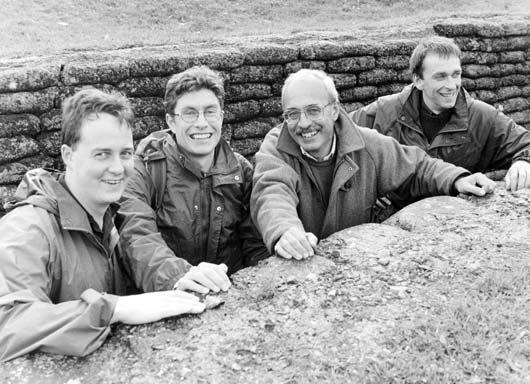
Tim in the trenches at Vimy Ridge with Professor Richard Holmes and RGS colleagues Phil Saint (98-01) and Michael Bond (95-02)
In 1988, I organised and led the first of many trips to Greece and Italy, and there have only been a few years in the interim when a party of RGS student has not set off to experience the magic of places such as Delphi, Olympia, Nauplion, Sorrento, Herculaneum and Pompeii; I am particularly proud to have established that tradition and I know that for many students who travelled with us, it was a highlight of their whole school career. Likewise the Year 11 Battlefields Trip has been a fixture in my autumn calendar since 1997, and it has been hugely enjoyable and equally moving to help guide generations of RGS students through the fields of Flanders and the Somme. The bonhomie between staff and students engendered by sharing these experiences on classics and history trips has certainly been a highlight of my teaching career.
I coached hockey and cricket in my early years (somewhat embarrassingly, I once appealed for a catch by John Barton (82-89), the U13 wicketkeeper, when I was umpiring). I’ve also been a house master, stage manager in the old (lowtech) RGS theatre, and common room treasurer. My extracurricular involvement was somewhat curtailed in 1992 when I took on the role of Head of Lower School (Years 7 & 8), a post which I held until two years ago when each year group was given its own dedicated head of year and I became just Head of Year 7. Until the last few years, assistant heads of year were unheard of, and so for a long period, through the nineties and noughties, Steve Watkins and I were responsible, by ourselves, for two year groups each; looking back, we sometimes wonder how we coped.
A confession: a recent clear-out of my office revealed complete sets of entrance data from the last 25 years. I am a terrible hoarder and probably require professional help! It will certainly feel very strange next January and February not to be embarking on the annual round of testing, datacollating and interviewing of 11 year-old aspirant RGS students, and although it was always one of the busiest times of the year, I always found it very satisfying. The various colleagues with whom I shared the interviews would I’m sure agree that meeting and chatting to so many youngsters was fun – even though it was inevitably an ordeal for some (many?) candidates, I hope that we made it just about bearable.
What will you miss about the RGS?
No question about it – my colleagues. RGS has been like a home for over 30 years (101 terms, to be precise) and my colleagues are like family (but without the arguments and washing up!) It will be really hard to say goodbye and I have to admit that I am dreading it.
Do you have one particular memorable moment from your time at the RGS?
Allow me two. I love the work of Arthur Miller, and directed a production of A View from the Bridge in 2013; I had a fantastic student cast – very talented and very charming people. It’s a very dark, intense play and they performed it magnificently, but I just remember a lot of laughter in rehearsals. The other memory is of a trip to Italy in around 2000: we were walking the RGS group to the summit of Mount Vesuvius when a horrid wintry squall came over and a vicious hailstorm engulfed us. We took shelter under the canopy of a small kiosk alongside a group of American high school students and for some reason (I’m assuming our innate British stoicism kicked in), the RGS students started singing Blake’s Jerusalem; our US cousins responded with a rendition of Star-Spangled Banner, attempting to match the bravura of our performance, but in vain. Victory to the Brits. The tempest abated, and we pressed on up the mountain, cold and wet but collectively buzzing!
What are you planning to do when you retire?
I shall play a lot of golf, learn Italian properly and visit Venice and the Veneto (my sister has an apartment there); I shall endeavour to get to grips with the guitar, work my way through the list of DIY projects my wife has lined up for me, and, I’m sure to the satisfaction of my Year 7 Latin classes over the years, I can assure them that Caecilius non in tablino sed in horto erit.
A View from the Bridge, in rehearsal, 2013
